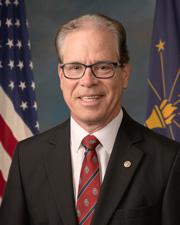0
Removing Section 230 Immunity for Official Accounts of Censoring Foreign Adversaries Act
2/2/2024, 4:15 PM
Congressional Summary of S 941
Removing Section 230 Immunity for Official Accounts of Censoring Foreign Adversaries Act
This bill eliminates liability protection (sometimes referred to as Section 230 protection) for particular social media platforms related to content generated or shared by adversarial foreign governments that restrict access to or censor social media platforms.
The Department of State must compile of list of such governments, and the list must include China, Cuba, Iran, North Korea, Russia, Syria, and Venezuela.
Under current law, a social media platform is generally not liable for content generated by third parties. Under this bill, if a social media platform knowingly hosts or distributes the content of a verified account controlled by or working on behalf of a listed government, the social media platform loses the liability protection for that content. (A verified account is one that displays a badge or other identifier that indicates the authenticity or validity of the account holder or has more than 500,000 followers.)
The provisions of the bill apply to any domestically headquartered internet website, application, or platform that (1) is open to the public, including citizens from any country; (2) primarily enables users to communicate with each other by posting information, comments, messages, or images; and (3) has more than 50 million monthly users in the United States. The provisions do not apply to email services or services where content is preselected by the provider (i.e., not user generated) and any chat, comments, or interactive features depend on the preselected content.

